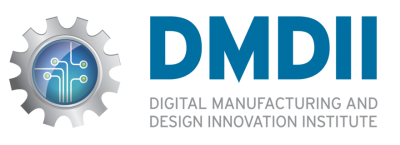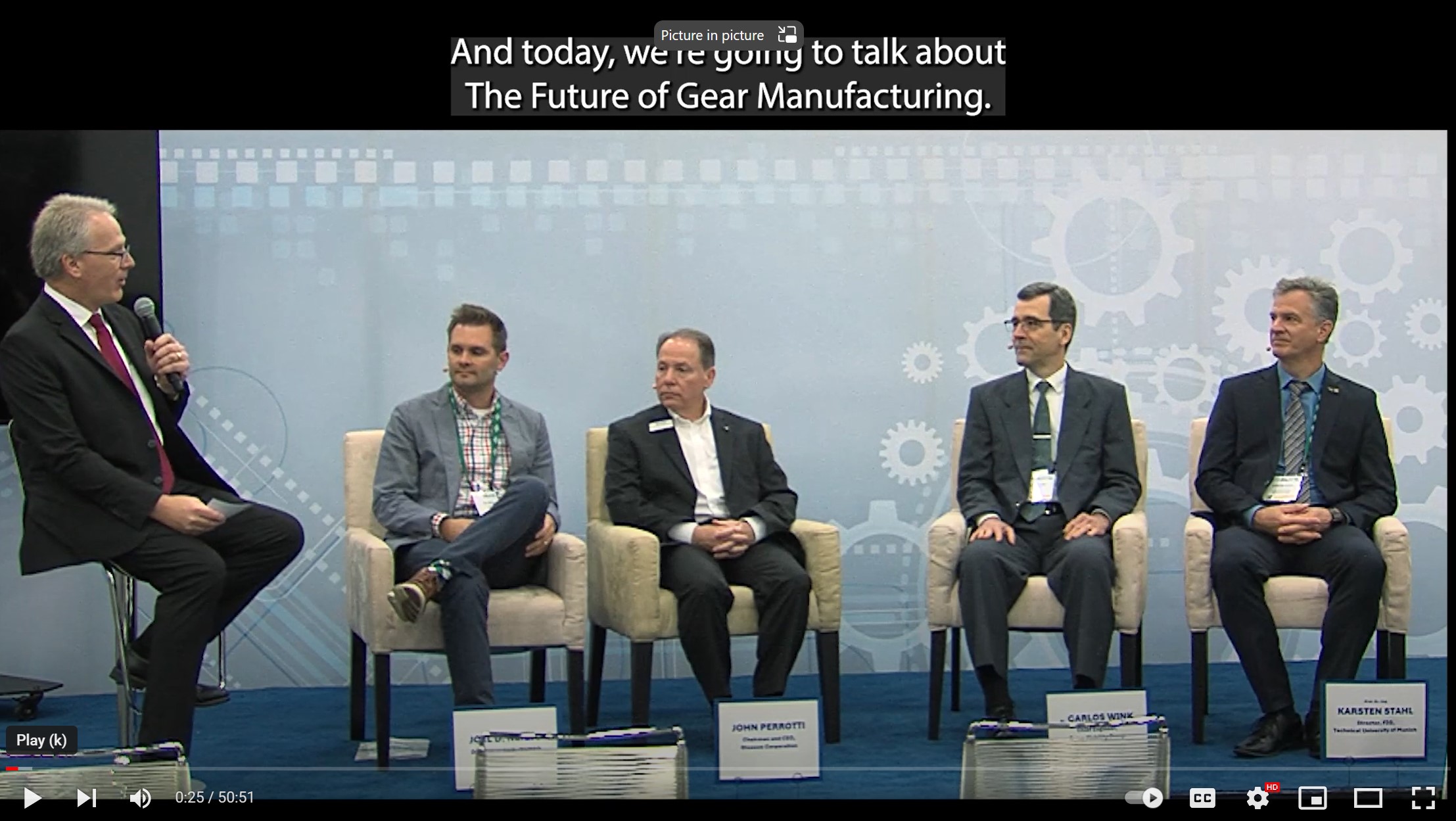DMDII Announces New Chapter in Quad Cities

Representatives from the Digital Manufacturing and Design Innovation Institute (DMDII), along with Senator Dick Durbin, Congresswoman Cheri Bustos (IL-17) and representatives from the Quad Cities Chamber announced a new chapter in the Quad Cities which will be housed at the Quad Cities Manufacturing Lab.
"The new chapter is a big win for the Quad Cities community and for manufacturers across the country," said Dean Bartles, chief manufacturing officer at UI Labs and executive director of DMDII. "As we work to revolutionize American manufacturing, DMDII is expanding our physical reach beyond Chicago and bringing the power of our national institute to other regional areas."
"The Quad Cities Chamber of Commerce was integral in the co-creation and development of this DMDII chapter," said Caralynn Nowinski Collens, chief executive officer at UI Labs. "We will rely on this relationship to take the digital technologies developed from DMDII projects into the workplaces of small- and medium-sized manufacturers across this community. This chapter model will be the basis of the many chapters that will open from coast to coast."
The launch expands DMDII’s existing relationships and partnerships within these two important Illinois hubs, including with members such as the Quad Cities Chamber of Commerce, John Deere, Eastern Iowa Community Colleges, Western Illinois University and the Quad City Manufacturing Lab. By connecting with the Quad Cities area small- and medium-sized enterprises (SMEs), DMDII will rely on its national expertise and local execution to help digitize the supply chain of American manufacturing and develop the workforce of the future.
"Today’s announcement is a significant step in the evolution of the Quad Cities Manufacturing Innovation Hub, as well as how economic development is offered in the Quad Cities," says Paul Rumler, chief economic development officer, Quad Cities Chamber. "Our partnership with DMDII will support manufacturing growth by enabling Quad Cities’ manufacturers to lead research projects and collaborate with their peers while leveraging the resources and brainpower of a National Manufacturing Innovation Institute. With the Quad City Manufacturing Lab operating as a satellite office, members here will have access to national R&D capabilities right in the Quad Cities."
"DMDII’s network and the resources it is assembling to improve America’s manufacturing industry are continuing to expand, starting right here in Illinois," said Governor Bruce Rauner. "DMDII’s first multi-state chapter in the Quad Cities will increase the competitiveness of companies within our state and cement Illinois’ leadership status as the place to go for manufacturing innovation."
Along with a new pilot chapter just announced in Rockford, Ill., the Quad Cities chapter will set the stage for future expansion across the United States. This effort is also an outgrowth of the strategy for the Illinois Manufacturing Lab, a partnership between the University of Illinois and UI Labs, to deliver advanced manufacturing solutions to Illinois companies while providing a collaborative platform for launching economic revitalization strategies across the state.
The new chapter will use existing local resources to connect SMEs, particularly in the Quad Cities’ defense manufacturing supply chain, in technology transition and workforce development to help digitize American manufacturing. SMEs will also have access to the resources and output of the Illinois Manufacturing Lab.
"Manufacturing is a critical component of our state and national economy," said Senator Dick Durbin. "By connecting regional and local talent with DMDII’s national network, we will continue to strengthen our local workforce while leading the nationwide manufacturing revolution. With a strong manufacturing workforce at the Rock Island Arsenal, the Quad Cities region is a perfect fit for DMDII’s new chapter. The Department of Defense has an enormous stake in ensuring that our country’s manufacturing evolves into a more agile and collaborative industry. The partnership announced today will move us closer to that goal."
John Deere is a leading company in the DMDII Membership, signing on to the consortium from day one.
"The formal launch of a Quad Cities DMDII chapter will strengthen the community’s focus on global manufacturing competitiveness for the region," said Deere & Company’s Bill Ratzburg, director of economic & community development. "John Deere has been a DMDII industry partner since its launch in early 2014 and we continue to believe that collaboration with local, regional, national and global thought leaders will drive innovative solutions to very complex problems. Digital manufacturing techniques such as additive manufacturing, robotics and the Internet of Things are critical to the success of manufacturers in the region, including those that are suppliers to Deere."
"Manufacturing has always been the core of our Quad-City community, and, together, we're positioning our manufacturers and our workforce to be leaders in the 21st century global economy," said Congresswoman Cheri Bustos. "By plugging our local employers into the manufacturing lab's network of larger manufacturers, educational institutions and digital production experts, we'll not only connect industry to these advanced tools, but we'll also help train our great workers for new jobs created by the digital manufacturing revolution."
"Placing our institutes in close proximity to communities rich in manufacturing history such as the Quad Cities and Rockford enables DMDII to accelerate to small and medium companies the benefits of the institute’s activities," said Adele Ratcliff, Director of Manufacturing Technology of the Department of Defense. "It is potentially a model that can be replicated across the nation."
The Quad Cities Chamber of Commerce has signed a memorandum of understanding with DMDII to be the lead organization for the Quad Cities area business and manufacturing community, and will work with local leadership to recruit new partners and organize the new chapter.
The Quad Cities region is positioned to be a model community in the renaissance of American manufacturing and prepared to be a central node in DMDII’s national network. In 2016, partners will come together through a series of DMDII -led Project Workshops to identify common issues and work to craft partnerships and award contracts to solve them.





